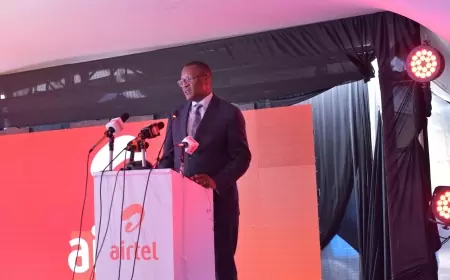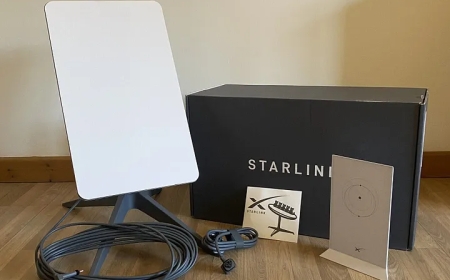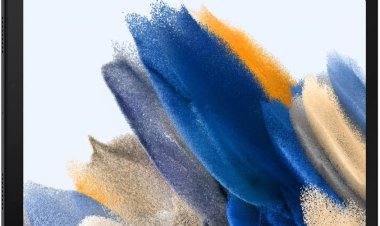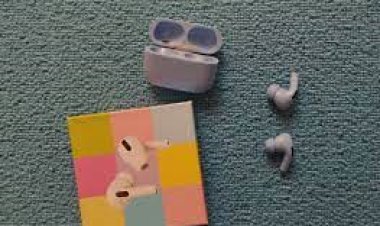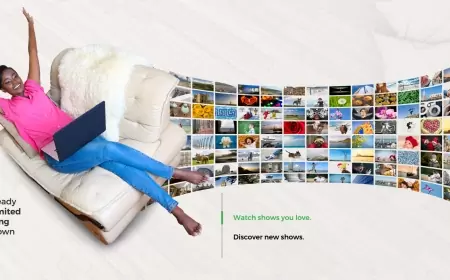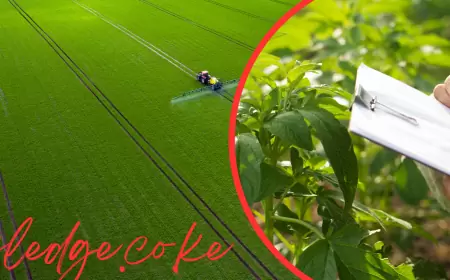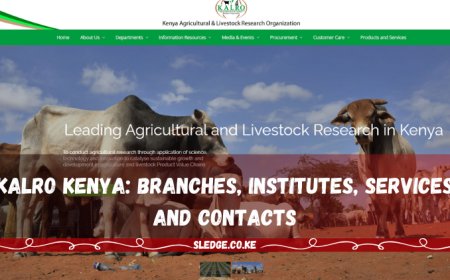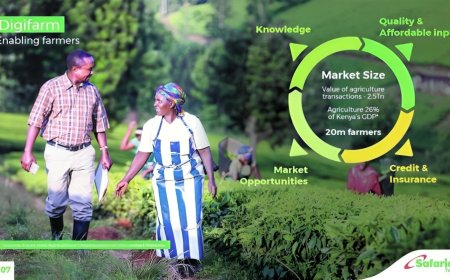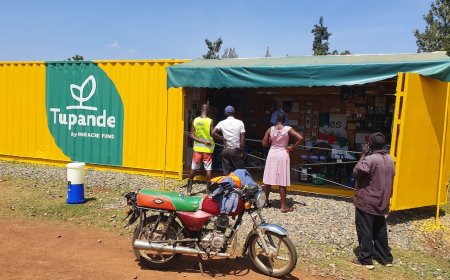Forex Trading in Kenya: A Beginner's Step-by-Step Guide 2024
Forex trading in Kenya could lead to profits if you choose a good trading plan and the right broker. Learn more details on forex trading in Kenya.
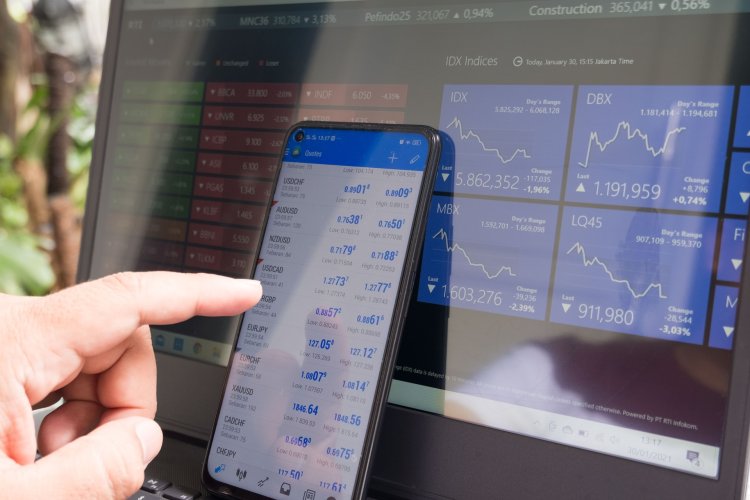
Forex trading, short for foreign exchange trading, is all about the dynamic world of currency exchange. Imagine this: you're trading different currencies, aiming to earn profits from changes in their value, influenced by global market movements. It's a fascinating and fast-paced financial activity, drawing in people keen on exploring the potential for gains in the international currency markets.
The Popularity of Forex Trading in Kenya
In recent years, Kenya has witnessed a surge in the popularity of forex trading. It's like a new wave of financial opportunity sweeping across the country. With Kenya's economy showing resilience and growth, more and more Kenyans are getting attracted to this form of investment. It's not just a buzz; it's a growing trend with real potential for those willing to dive into the world of currencies.
Legal and Regulatory Framework
When it comes to forex trading in Kenya, it's not a free-for-all scenario. The Capital Markets Authority of Kenya plays a crucial role here. Think of them as the guardians of the forex trading realm in Kenya, ensuring that everything runs smoothly and legally. They regulate and oversee forex trading, making sure that traders and brokers operate within a safe and fair trading environment.
Importance of Forex Trading Skills and Knowledge
Now, don't get fooled into thinking that forex trading is a simple click-and-earn activity. It's far from it. Success in forex trading is a blend of knowledge, experience, and a good handle on your emotions. It's like learning to ride a bike, but in the financial world. The risks are high, but so are the potential rewards. However, just like any high-risk investment venture, it requires a solid foundation in education and practical skills. You wouldn't want to jump into the deep end without knowing how to swim, right? The same goes for forex trading. Gaining the necessary skills and knowledge is essential before taking the plunge.
How to Learn and Start Forex Trading in Kenya
Step 1: Understanding the Basics of Forex Trading
Forex trading isn't just about exchanging currencies; it's an art and science of understanding and capitalizing on the fluctuations in currency values. Imagine a marketplace without boundaries, where traders from all over the world exchange currencies in pairs, like the Euro against the US Dollar (EUR/USD). This section is your first step into the vast world of forex trading.
The Concept of Currency Pairs and Market Dynamics
At the heart of forex trading are currency pairs. Each pair consists of two currencies, with the value of one currency quoted against the other. For example, if you're trading EUR/USD, you're essentially assessing the value of the Euro against the US Dollar. Understanding these pairs is like learning the basic grammar of a new language. There are three types of currency pairs: The Majors, Minors, and Exotic pairs. Each type behaves differently, offering various levels of risk and opportunity.
Forex Market Dynamics are equally fascinating. Did you know that the forex market is the most liquid market in the world, with a whopping daily trading volume of around $6.6 trillion as of 2019? It's a market that never sleeps, operating 24/7, with traders from Nairobi to New York trying to predict and profit from currency value changes. These changes are influenced by multiple factors, from geopolitical events to economic data releases.
Key Forex Trading Terminology: Pips, Leverage, Spread

As you venture into forex trading, you'll encounter a whole new vocabulary. Pips, for instance, are a fundamental concept. A pip represents the smallest price move that a currency pair can make. It's the last decimal point in a currency pair's rate, and understanding pips is crucial for calculating your potential profit or loss.
Leverage is another key term. It's like a booster for your trading capacity, allowing you to control a large position with a relatively small amount of capital, known as margin. However, leverage is a double-edged sword; it can amplify both profits and losses.
Lastly, the spread is the difference between a currency pair's bid and ask price. It's a critical factor as it affects the cost of your trades. The narrower the spread, the less it costs to enter and exit a trade.
Step 2: Choosing the Right Broker and Trading Platform
Selecting a forex broker and platform is like choosing a partner in a dance. You need someone who understands your rhythm and moves. In Kenya, you have a choice of brokers regulated by the Capital Markets Authority (CMA), ensuring safety and reliability in your trading journey. When choosing a broker, consider factors like their regulatory status, trading platform features, customer support, and transaction costs.
Some popular platforms offer advanced features like mobile trading, technical analysis tools, and educational resources. It's about finding a platform that not only meets your trading needs but also helps you grow as a trader.
Step 3: Setting Up a Trading Account
Embarking on your Forex trading journey in Kenya starts with setting up a trading account. It's like opening a new door to the world of financial markets. But don't rush; choosing the right account and understanding the process is key.
The Process of Opening and Funding a Forex Trading Account
First, you need to find your trading partner – a regulated broker. Think of it as choosing a reliable companion for your trading adventure. In Kenya, it's essential to select a broker regulated by the Capital Markets Authority (CMA) for safety and credibility. These brokers include names like EGM Securities and PepperStone Kenya. They ensure that your funds are secure and provide compensation in the unlikely event that they go out of business.
Once you've picked your broker, it's time to open an account. This process involves providing some personal information and completing a few verification steps, in line with international laws against financial crimes. After your account is set up, the next step is funding it. Start with a comfortable amount, but remember, only invest what you can afford to lose.
Starting with a Demo Account for Practice
Before diving into real trading, it's wise to start with a demo account. Imagine a simulation of the real forex market, but with no risk. These demo accounts come with virtual funds, allowing you to test strategies and get a feel for the market's pulse without risking your actual money. It's a valuable learning experience, helping you understand market conditions and refine your trading tactics. Only after consistent success in the demo environment should you consider moving to live trading with real money.
Remember, the journey from a demo to a live account is a significant step. Treat it with the seriousness it deserves, ensuring you are ready both in terms of skill and emotional preparedness.
Step 4: Learning Forex Trading Strategies
Now that you're set up with an account, it's time to build your trading strategy. This is where you define your approach to the market, decide how you'll make decisions, and determine how you'll manage risks.
Fundamental vs Technical Analysis in Forex Trading
Forex trading strategies fall into two main categories: Fundamental Analysis and Technical Analysis. Fundamental analysis involves looking at economic indicators and news reports that affect a currency's value. It's like being a detective, piecing together clues from the economy to predict currency movements. On the other hand, technical analysis is more about studying historical market data and using charts to predict future price movements. It's like reading a map, using patterns and indicators to find your way in the market.
Both methods have their merits, and most traders find a blend of both to be the most effective approach. As a beginner, it's important to understand the basics of both and gradually develop a strategy that suits your trading style and goals.
Step 5: Risk Management in Forex Trading
Venturing into the world of forex trading without understanding risk management is like sailing a boat without a life jacket. It's essential to not only recognize the risks involved but also learn how to navigate them wisely.
Understanding and Managing the Risks Associated with Forex Trading
Forex trading, with its potential for high returns, also comes with a high risk of loss. You could even lose more than your initial investment. One of the biggest risks in forex trading is the market's volatility. The forex market can change rapidly due to various economic, geopolitical, and social factors. Today's profitable currency pair might be tomorrow's loss.
To manage these risks, start with education. Learn about the factors that affect currency values and how to anticipate market movements. Also, practice on your demo account to understand how these factors play out in real trading scenarios.
Importance of Practice and Strategy Development
Developing a sound trading strategy and sticking to it is crucial. This strategy should include clear guidelines on when to enter and exit trades, how much to invest in each trade, and when to cut losses. Remember, no strategy guarantees success, but having a plan is better than trading on a whim.
Practice is also vital. The more you trade on your demo account, the better you'll understand the market's nuances. It's like rehearsing for a play; the more you practice, the better your performance. Use your demo account to refine your strategy, adapt to market changes, and learn to manage your emotions, especially during volatile market conditions.
Step 6: Advancing Your Skills and Gaining Experience
Forex trading is a continuous learning journey. As you gain experience, you'll discover new strategies, tools, and insights that can help improve your trading.
Ways to Enhance Your Trading Skills Through Continuous Learning
Continuously educating yourself is key. Take advantage of resources like webinars, workshops, and online courses offered by established forex academies in Kenya. They can provide valuable insights and up-to-date knowledge on forex trading trends and techniques.
Also, don't underestimate the power of networking with other traders. Joining trading communities can provide support, share experiences, and offer new perspectives on trading strategies.
Importance of Gaining Practical Trading Experience
Practical trading experience is irreplaceable. The more you trade, the more you learn about market behavior, your own trading tendencies, and how to adapt to changing market conditions. Remember, each trade is an opportunity to learn. Keep a trading journal to track your progress, analyze your trades, and learn from both your successes and mistakes.
FAQs: Forex Trading in Kenya
What is the minimum deposit required to start forex trading in Kenya?
- The minimum deposit varies by broker. Some brokers offer accounts with a minimum deposit as low as $5 (approximately 583 KES), making it accessible for beginners to start small.
Can forex trading be a full-time profession in Kenya?
- Absolutely! Many individuals in Kenya have embraced forex trading as their full-time profession. However, it requires a significant amount of knowledge, experience, and discipline to succeed in making it a sustainable career.
What are the common mistakes beginners make in forex trading?
- Beginners often make mistakes like trading without a strategy, ignoring risk management, over-leveraging, and letting emotions drive their trading decisions. It's crucial to learn and grow from these common pitfalls.
READ ALSO: Best Zero Deposit Car Finance in Kenya: Pros, Cons, and Best Providers
Conclusion
Embarking on the journey of Forex trading in Kenya can be both exciting and challenging. It opens up a world of financial possibilities but requires a strong foundation of knowledge, strategy, and discipline. As we've explored in this guide, starting with the basics, choosing the right broker, practicing with a demo account, and understanding risk management are pivotal steps.
The path to becoming a successful forex trader is paved with continuous learning and practical experience. It's a journey that demands patience, persistence, and a willingness to adapt to the ever-changing dynamics of the forex market.
Remember, every successful trader was once a beginner. With the right approach, dedication, and mindset, forex trading can be a rewarding endeavor. Embrace the learning curve, stay informed, and always practice prudent risk management. Here's to your success in the exciting world of Forex trading in Kenya!
